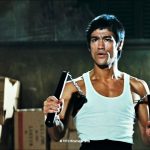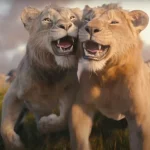The Outlaw Josey Wales (1976)

“The Outlaw Josey Wales,” directed by and starring Clint Eastwood, is a landmark film in the Western genre that was released in 1976. Set during and after the American Civil War, the film tells a powerful story of loss, revenge, and the search for redemption in a world torn apart by conflict. With a talented cast including Chief Dan George, Sondra Locke, Bill McKinney, and John Vernon, the film stands as a poignant exploration of violence, morality, and the human condition.
The narrative follows Josey Wales, a Missouri farmer played by Eastwood, whose life is irrevocably changed when Union soldiers murder his family during the Civil War. Driven by grief and a thirst for vengeance, Wales joins a band of Confederate guerrillas fighting against the Union forces. However, as the war comes to an end, he finds himself on the run, pursued by both Union soldiers and former comrades who have turned against him. This initial setup establishes a classic revenge tale, but Eastwood’s direction transforms it into something deeper and more reflective.
The film’s portrayal of the Civil War era is both gritty and realistic, showcasing the harsh realities of life during a time of great upheaval. The cinematography, crafted by Bruce Surtees, captures the vast landscapes of the American West, juxtaposing the beauty of the land with the brutality of human conflict. The cinematographic choices serve to emphasize Wales’ isolation and the desolation that accompanies his journey.
Clint Eastwood delivers a nuanced performance as Josey Wales, embodying a complex character who grapples with the consequences of his actions. Wales is not merely a ruthless outlaw; he is a man shaped by trauma and loss, seeking both vengeance and a sense of belonging. As he travels through the unforgiving landscape, he encounters a diverse array of characters, each of whom contributes to his evolution. These encounters highlight the film’s exploration of human connection amidst the chaos of war.
One of the most memorable aspects of “The Outlaw Josey Wales” is its rich supporting cast. Chief Dan George plays the role of Lone Watie, a wise and humorous Cherokee man who becomes Wales’ ally. Their relationship is central to the narrative, embodying themes of friendship and understanding that transcend cultural and racial divides. Sondra Locke portrays a widow who also becomes an integral part of Wales’ journey, providing emotional depth and highlighting the impact of war on women and families.

The film is notable for its revisionist approach to the Western genre. While many classic Westerns depict a clear distinction between good and evil, “The Outlaw Josey Wales” blurs these lines, presenting morally ambiguous characters and situations. Wales’ quest for revenge raises questions about justice and morality, challenging the viewer to consider the cost of violence and the possibility of redemption. This nuanced portrayal of the human experience adds depth to what could have been a straightforward revenge narrative.
The screenplay, written by Philip Kaufman and based on the novel “The Rebel Outlaw: Josey Wales” by Forrest Carter, is filled with sharp dialogue and poignant moments. The interactions between characters are often laced with wit and wisdom, providing a balance to the film’s darker themes. The humor that emerges from these exchanges serves to highlight the resilience of the human spirit, even in the face of overwhelming adversity.

Musically, the film features a memorable score by Jerry Fielding that enhances the emotional resonance of key scenes. The music underscores the themes of loss and longing, evoking a sense of nostalgia for a world that has been irrevocably changed by war. This auditory landscape complements the film’s visual storytelling, creating a holistic cinematic experience.
As the narrative unfolds, Wales gradually shifts from a solitary figure seeking vengeance to a reluctant leader of a disparate group of people, including outlaws and Native Americans, who are also searching for safety and belonging. This transformation highlights themes of community and kinship, suggesting that in a world rife with violence, connections with others can provide solace and strength.

In conclusion, “The Outlaw Josey Wales” is a masterful revisionist Western that transcends its genre conventions. Through Clint Eastwood’s direction and performance, the film explores profound themes of loss, revenge, and the quest for redemption. Its rich character development, moral complexity, and stunning cinematography create a lasting impact that resonates with audiences. As a seminal work in American cinema, “The Outlaw Josey Wales” invites viewers to reflect on the nature of justice and humanity in a world shaped by conflict, ultimately reminding us of the enduring power of compassion and understanding.
Suggested videos for you:
Suggested videos for you:
@lovrstify99 Red Tails (2012) warII movie actionmovie #actionmovie2024
Suggested videos for you:
@licktowing11 Denzel Destroys The Mafia! – Opening Fight Scene – The Equalizer 3 #movie #movieclip









